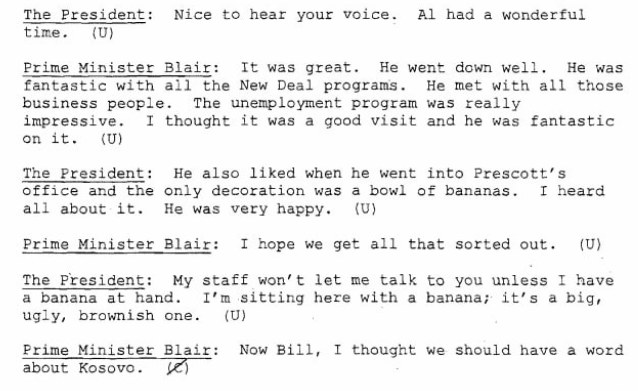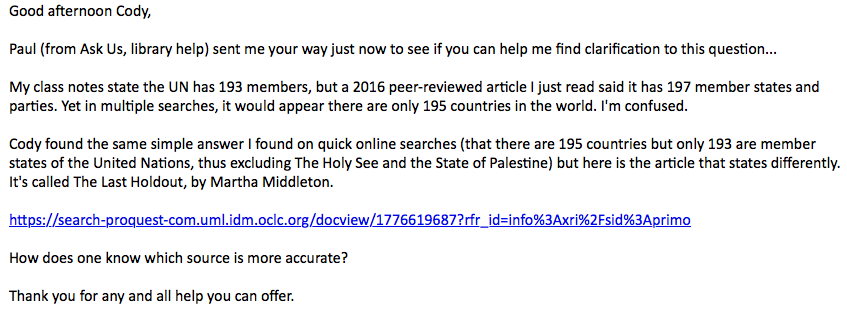Information Authority:
Understanding Fake News
Art Infusion in the Digital Age
January 26, 2022
Cody Fullerton
Data & Social Science Liaison Librarian
There seems to be a lot of disinformation on the internet
Disinformation:
False information deliberately presented as true or real
Misinformation:
False information unintentionally presented as true
It is difficult to sort out the truth from falsehood
"Truth" can be an abstract concept, so we will stick to the word real or fact
It's especially hard when the fact is strange

Source: https://www.buzzfeed.com/jimwaterson/why-are-there-so-many-references-to-bananas?utm_term=.ogGPQoqjbo#.nwBek0xYZ0
Disinformation is everywhere:
Disinformation is everywhere:
Almost anything can be misleading:
Even established newspapers publish "advertorials"/sponsored content
There's also how our brain processes information to take into account...
Cognitive Bias
Humans have a tendency to believe or look for information that:
(1) confirms the beliefs they already believe
(2) makes them feel good about themselves
(3) makes people they care about look good
Humans have a tendency to discount information that:
(1) questions things they already believe
(2) makes them feel bad about themselves
(3) makes people they care about look or feel bad
Source: Lenker, M. (2016). Motivated Reasoning, Political Information, and Information Literacy Education. portal: Libraries and the Academy, 16(3), 511-528.
What does this mean?
We can believe things without evidence
AND
We can believe things in spite of evidence
How to deal with disinformation and bias:
1. Look at the context:
Think Critically!
- Take a look at similar sources
- If you are reading a book, look at some reviews
- Also, look to see who cited the article, maybe there are opposing viewpoints
- Talk to your librarian
2. Distinguish between opinion and evidence:
- All articles are trying to make a point or argue a side
- Having an opinion is not problematic if it is supported by good evidence in order to be credible.
- *Opinion is not enough*
3. Check yourself before you wreck yourself
- Try and find information that disproves your theory or opinion
- Think of any possible counter arguments
- Remember we all have biases
Test time!

Questions?
Thanks!
Cody Fullerton
Data & Social Science Liaison Librarian
cody.fullerton@umanitoba.ca
(204) 807-5860